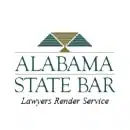Back pain is a daily reality for many individuals. Whether due to the stress of a physically demanding occupation or the long-term consequence of sitting at an ill-fitting desk every day, thousands of individuals file workers’ compensation claims for back injuries each year.
While many are successful with these claims, back injuries are often contested by employers because it can be difficult to ascertain whether such an injury arose as a result of a work accident or other unrelated factors, such as a sports injury or a car accident. At Hansford McDaniel - Workers' Compensation Attorneys, our back injury attorneys in Atlanta guide those with back injury claims in Georgia and Alabama.
If you have you are experiencing back pain, reach out to our Atlanta back injury lawyers today. Call 770-922-3660 for a FREE consultation!
Suffering Back Injuries On the Job
Different types of back injuries can arise in all types of circumstances while on the job. If you work in a physically demanding profession that requires you to lift or move heavy objects on a regular basis, you may risk straining your back muscles from overuse, or you may develop a disc or spinal problem. Alternatively, if you spend extensive time staring at a computer screen that is not tailored to your eye level, this can result in damage to your back muscles.
The following are the most common types of back injuries:
- Herniated, Ruptured, or Slipped Discs- A disc becomes herniated when a fragment of the disc nucleus in the spine is pushed out into the spinal canal through a tear.
- Strained Neck Muscles- A neck strain occurs when the fibers in the muscles of the neck are stretched too far beyond their capacity and tear. These injuries may be very serious depending on the size and location of the tear.
- Compression Fractures- A compression fracture occurs when one or more bones in the spine collapse due to weakness.
- Pinched Nerves- A pinched nerve occurs when there is too much pressure applied to it by the tissue that is surrounding it. This pressure disrupts the nerve which may cause pain, weakness, or numbness.
In any of these scenarios, your back injury may develop over time, as a result of repetitive stress or overuse. At the other end of the spectrum, some workers experience sudden and immediate neck or back injuries as a result of an unexpected collision or fall.
Workplace Back Injury Statistics
According to the Bureau of Labor Statistics, over 1 million workers are affected by back injuries each year, which accounts for about 20% of all work-related injuries. Most back injuries that occur in the workplace are due to incorrect lifting and load-carrying techniques.
What Should I Do After a Back Injury at Work in Atlanta?
If you’ve hurt your back while working, you have the right to file a claim for workers’ compensation benefits through your employer. If you need assistance with workers’ compensation claims, contact our back injury lawyers in Atlanta for experienced and aggressive help to seek compensation!
The following steps are typically involved in a workers’ comp claim:
- Notify your employer right away of your condition
- Complete any paperwork needed for your claim
- Give your employer’s insurance carrier up to 21 days to investigate/evaluate your claim
- Be ready to provide any necessary medical evidence
- Remain prepared for a hearing if your claim is denied
What if My Workers’ Compensation Claim is Denied?
If you do have your claim denied by the insurer, you will have the opportunity to appeal the decision through a hearing. You will need to request a hearing with the State Board of Workers’ Compensation—our workers’ comp attorneys have frequently mediate and litigated cases in front of this board. A judge will have to review any evidence involved and mediated a written decision regarding your claim.
As most injuries—especially those to the back—require timely care, an injured worker can move forward with medical treatment while awaiting the outcome of their hearing. It is also very important to ensure any treatment you receive is from a physician on the approved list selected by your employer if they provided one. If you go to a healthcare professional outside of this list, you may not be able to recover compensation for your medical expenses.













